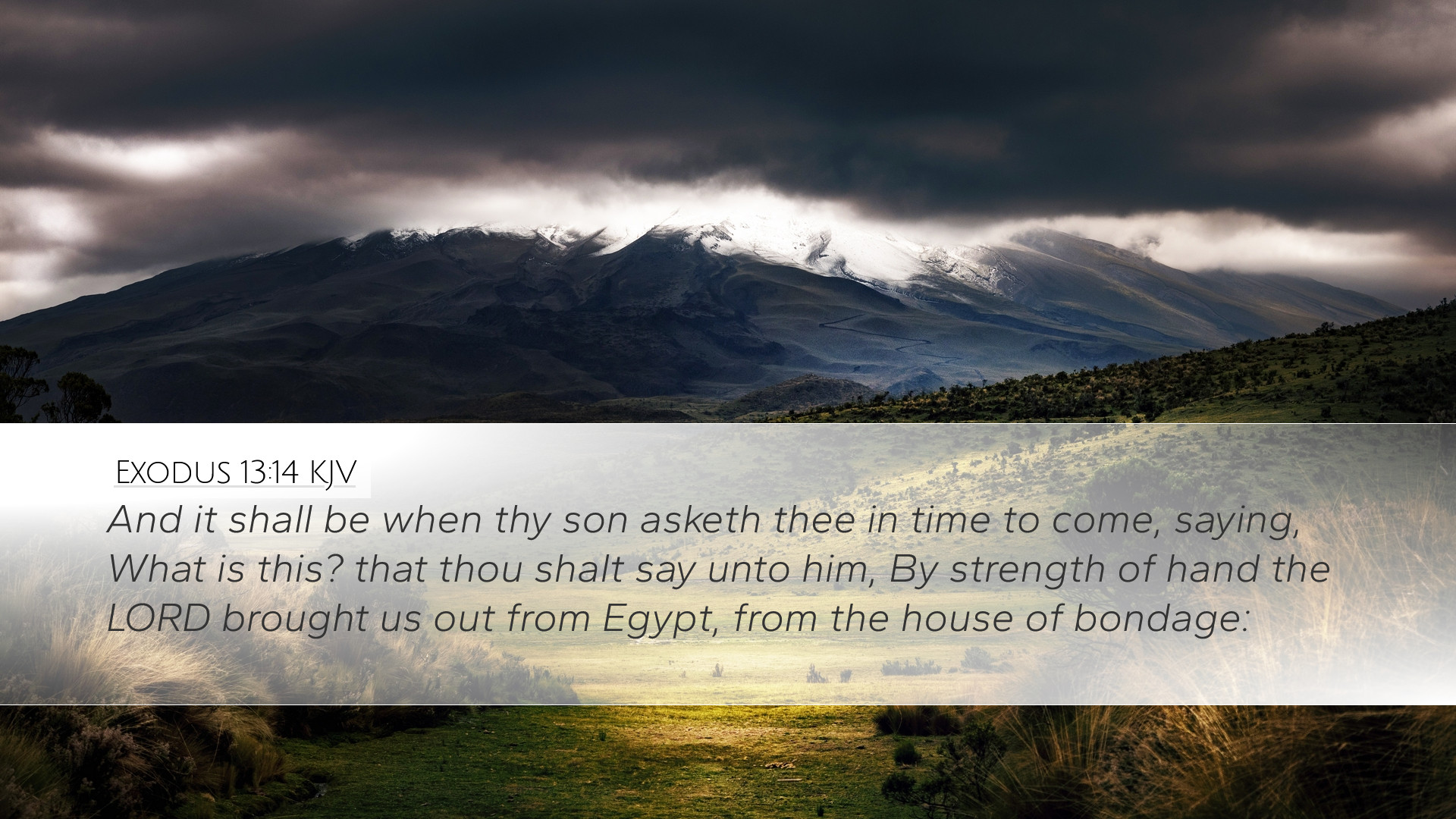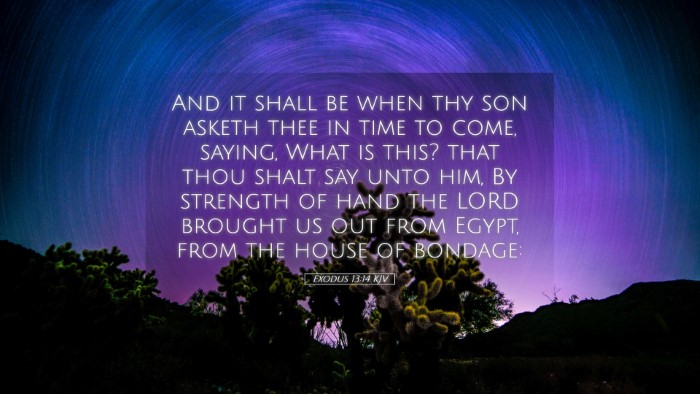Commentary on Exodus 13:14
"And it shall be when your son asks you in time to come, saying, What is this? That you shall say to him, By strength of hand the LORD brought us out of Egypt, out of the house of bondage."
Introduction
The verse Exodus 13:14 serves as a foundational declaration of God's redemptive work on behalf of His people. This passage is pivotal, not merely as an act of remembrance but as an instruction for future generations. In this commentary, we will explore insights from esteemed public domain commentators such as Matthew Henry, Albert Barnes, and Adam Clarke to unravel the depth of this verse's meaning for pastors, students, theologians, and Bible scholars.
Contextual Analysis
Exodus 13:14 occurs in the broader narrative of Israel's deliverance from Egyptian bondage. This chapter immediately follows the Passover, a profound act of salvation, wherein the blood of the lamb signified protection from death. The emphasis on transmission—instilling the memory of God's acts into the consciousness of children—is crucial for understanding the communal and covenantal relationship between God and His people.
Historical Significance
Matthew Henry observes that the command to teach future generations is an essential aspect of Jewish tradition. The call to remembrance highlights how vital it is for believers to keep alive the narratives of God's faithfulness. It roots the identity of the Israelites in a shared history that transcends individual experience, weaving them into the collective story of redemption.
Instruction for Parents
Albert Barnes notes that this verse not only addresses the moment of deliverance but serves as a teaching opportunity for parents. The specific inquiry posed by a son is anticipated, showcasing an important pedagogical approach: answering questions about faith and heritage allows for deeper engagement. By relating their liberation to their children, parents reinforce their religious identity and God's active role in history. Barnes emphasizes that the phrase "strength of hand" illustrates God's might and sovereignty in the exodus.
Theological Implications
Adam Clarke offers a concise theological interpretation, connecting this verse to the theme of redemption. He posits that the inquiry from the son not only encourages explanation but evokes a participatory remembrance—drawing the family together through recounting God’s mighty works. Clarke elucidates that by articulating the meaning behind these acts, believers affirm their faith and the covenantal promises made by God.
Applications for Today
This verse poses serious considerations for contemporary believers, particularly regarding teaching the next generation. It encourages parents and mentors to incorporate their personal narratives of faith into discussions, creating a living memory that influences the faith journeys of their children.
- Faith Transmission: Just as the Israelites were instructed to communicate the story of their deliverance, modern believers must find ways to share their own testimonies of God’s faithfulness and intervention.
- Encouraging Inquiry: The anticipated question from the son signifies a model for dialogue about faith. Leaders and parents alike should foster environments where questions about God and His actions are welcomed.
- Understanding Deliverance: For scholars and theologians, Clarke’s commentary offers a rich examination of redemption themes, encouraging deeper exploration of the implications of God's hand in present-day contexts.
Conclusion
Exodus 13:14 articulates a profound truth about remembrance and instruction. The insights drawn from the works of Matthew Henry, Albert Barnes, and Adam Clarke have illuminated the importance of communicating God’s mighty acts throughout generations. This practice of remembrance not only binds communities together in shared faith but also encourages a legacy of spiritual inquiry and growth. As believers engage with this verse, they are reminded that the strength of God’s hand in their lives is a story worth telling, worthy of being passed down through time. Through such reflections, pastors, students, theologians, and Bible scholars can find both inspiration and guidance in their journey of faith.


